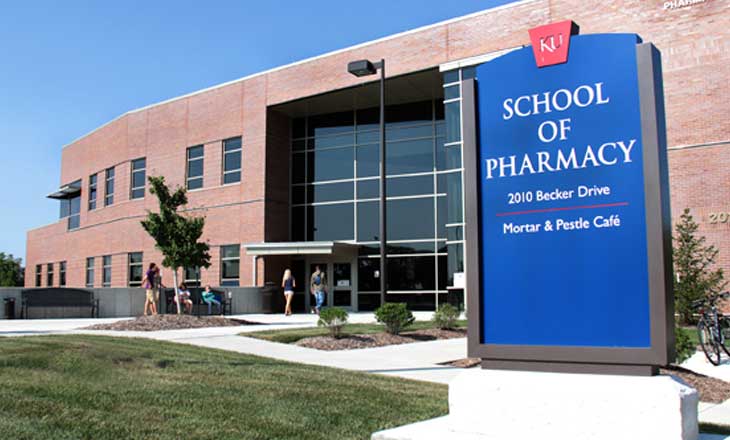| 2013 Fall | story by JOE MONACO | SCHOOL OF PHARMACY |

KU research sets record, though federal cuts pose challenges
The University of Kansas generated a record $275.2 million in externally sponsored research expenditures in 2011-12, demonstrating how KU’s strength as a research university is an asset for the state.KU conducts more research than all other universities in Kansas combined. Of the $275.2 million received in 2011-12 to support research projects at all KU campuses, approximately $250 million came from the federal government and other sources outside of Kansas.
“KU bolsters the state’s economy in a range of ways,” said Steve Warren, vice chancellor for research and graduate studies. “Not only are jobs directly created by this research, but we make discoveries that generate prosperity and well-being for people across the state.”
The total for 2012 was nearly $20 million more than in 2011, and double what it was in 2000.
“Researchers at all KU campuses are extremely active, competitive and successful in obtaining external support for their work. That reflects a huge return on the state’s investment in talented faculty,” Warren said.
While the economic benefit of KU research in Kansas is clear, the future of federal funding for research is less certain. Last spring, an automatic 5 percent cut in federal spending went into effect. The full impact of the ongoing budget sequester was not felt immediately, but KU and other U.S. research universities are bracing for what is ahead.
“Unless the sequester is turned off soon, research expenditures will almost certainly be lower this time next year,” Paul Terranova, vice chancellor for research at the KU Medical Center said. “That’s a challenge for our researchers, of course, and we have to deal with it. But I’m far more concerned about the discoveries in human health, education, energy and many other fields that won’t be made if the sequester is made permanent.”
Warren and Terranova strongly encourage KU researchers to continue to pursue federal funding opportunities, as well as grants from foundations and industry.
“The worst thing you could do in this uncertain environment is to become discouraged and stop seeking research support,” Warren said. “The sequester has reduced agency budgets, but the federal government remains the leading source of funding, and we have to pursue it aggressively.”
KU ranks No. 2 nationally in pharmacy research funding
For the second consecutive year and the third time in four years, the University of Kansas School of Pharmacy is ranked No. 2 in the nation in National Institutes of Health funding.
The School of Pharmacy earned more than $25 million in NIH research funding in fiscal year 2012 — an increase of $3 million from the previous year’s total. The NIH is a primary source of federal funding for pharmacy schools, and NIH funding is considered a key indicator of the productivity and quality of a school’s faculty.
This marks the 12th consecutive year the school has been ranked in the top five. It has been in the top 10 every year since 1995. KU is the only Big 12 institution in the top 10.
Additionally, the KU School of Pharmacy ranks No. 1 nationally in the value of awards per funded faculty member. The school’s 24 NIH-funded faculty members bring in an average of more than $1 million each. Additional funding is awarded to researchers who collaborate with colleagues from other schools
“Faculty researchers at the KU School of Pharmacy are second to none,” Ken Audus, Dean of the pharmacy school, said. “Year after year, they compete for and earn significant outside funding. They bring millions of dollars to the university and the state, and more important, they make discoveries that improve the lives of people throughout the world.”
The rankings are based on data collected and posted by the American Association of Colleges of Pharmacy. KU Chancellor Bernadette Gray-Little said the NIH rankings affirm the KU School of Pharmacy’s status as a national leader.
“These rankings show that our faculty are aggressive in competing for external grants and demonstrate why KU has such a strong return on investment for the state of Kansas,” Chancellor Bernadette Gray-Little said “More important, these rankings demonstrate that our researchers are leading the way in developing new cures and therapies to improve our health and quality of life.” ■
